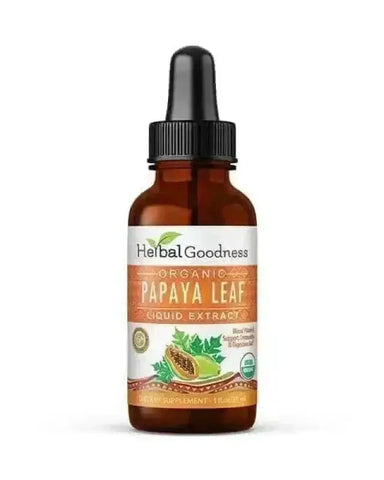The Powerful Health Benefits of Cinnamon: A Spice for Your Wellness
Cinnamon, a beloved spice known for its warm, sweet aroma, has been treasured for centuries not only for its flavor but also for its powerful medicinal properties. Derived from the inner bark of trees from the genus Cinnamomum, cinnamon is packed with antioxidants and anti-inflammatory compounds that can boost overall health. In this blog, we’ll explore the health benefits of cinnamon, how to incorporate it into your daily routine, and why it’s considered one of the healthiest spices on the planet.
What is Cinnamon?
Cinnamon comes in two main varieties: Ceylon cinnamon (often referred to as "true cinnamon") and Cassia cinnamon. Ceylon is considered the premium version and is more commonly used for health benefits, while Cassia is widely available and used in most culinary recipes. Regardless of the type, cinnamon is renowned for its potent antioxidant, anti-inflammatory, and antimicrobial properties.
Top Health Benefits of Cinnamon
1. Rich in Antioxidants
Cinnamon is loaded with powerful antioxidants, such as polyphenols, which protect the body from oxidative stress caused by free radicals. These antioxidants not only support overall health but also help manage the signs of aging, promote healthy skin, and protect against various cell decline.
2. Anti-Inflammatory Properties
Inflammation is the body’s natural response to infection, but inflammation can lead to numerous health problems. Cinnamon contains anti-inflammatory compounds that can help manage inflammation throughout the body, providing comfort for conditions like muscle pain, and inflammation.
3. Supports Heart Health
One of the most significant benefits of cinnamon is its ability to improve heart health. Research suggests that cinnamon can lower bad cholesterol (LDL) and triglycerides while maintaining good cholesterol (HDL). By supporting healthy blood circulation and reducing cholesterol levels, cinnamon can help manage the risk of heart disease and stroke.
4. Regulates Blood Sugar Levels
Cinnamon is widely known for its ability to naturally regulate blood sugar, making it a natural remedy for metabolic health. It boosts insulin sensitivity and helps manage blood sugar levels after meals by slowing the breakdown of carbohydrates. Incorporating cinnamon into your diet may help manage blood sugar spikes and maintain stable glucose levels throughout the day.
5. Boosts Brain Function
Cinnamon has been linked to improved brain function, particularly in terms of memory and cognitive performance. The compounds in cinnamon may help protect neurons and boost motor function, which can slow down the progression of neurodegenerative states. Even the simple act of smelling cinnamon has been shown to boost cognitive processing.
6. Fights Bacterial and Fungal Infections
Cinnamon’s antimicrobial properties make it effective at fighting bacterial and fungal infections. It’s particularly potent against fungus that can cause issues in the mouth, throat, and digestive system. Cinnamon oil has also been used as a natural remedy for respiratory health, thanks to its ability to inhibit the growth of harmful bacteria.
7. Supports Digestive Health
Cinnamon is excellent for digestive health, offering relief from bloating, gas, and indigestion. The spice helps stimulate the digestive system and can manage nausea and stomach cramps. Cinnamon tea is a popular remedy for soothing upset stomachs and promoting overall gut health.
8. May Aid in Metabolism
For those looking to support healthy metabolism, cinnamon may offer a helpful boost. Its ability to naturally regulate blood sugar levels can help manage cravings and hunger, while its thermogenic properties may help increase metabolism. Including cinnamon in your diet can also aid in breaking down fats, making it a great addition to wellness strategies.
How to Use Cinnamon
1. Cinnamon Tea
Cinnamon tea is an easy and delicious way to reap the benefits of this spice. Simply steep a cinnamon stick or ground cinnamon in hot water for 10 minutes and enjoy. It’s a great digestive aid and a comforting drink for cooler months.
2. Add Cinnamon to Smoothies
Sprinkling cinnamon into your morning smoothie is an excellent way to add a nutritional boost to your diet. Its sweet and spicy flavor pairs well with fruits, vegetables, and protein powders.
3. Incorporate it into Baking and Cooking
Cinnamon is a staple in many baked goods like cookies, cakes, and muffins. However, you can also add it to savory dishes like roasted vegetables, stews, or curries. It enhances the flavor while providing health benefits.
4. Take Cinnamon Supplements
For those who want a more concentrated dose of cinnamon, supplements are available in capsule or extract form. These are particularly useful for individuals managing specific health conditions like diabetes or high cholesterol.
Precautions
While cinnamon is generally safe to consume in moderate amounts, excessive consumption of Cassia cinnamon can lead to health risks due to its higher coumarin content. Coumarin is a compound that can cause liver damage in large amounts. To avoid any adverse effects, opt for Ceylon cinnamon when possible, and consult a healthcare professional before using cinnamon supplements, especially if you are pregnant, nursing, or taking medication.
Where to Buy Cinnamon
Cinnamon is widely available in most grocery stores and supermarkets, but for the best quality, look for organic Ceylon cinnamon. It is often sold in health food stores or online retailers in both stick and powder forms. Be sure to read labels carefully to distinguish between Ceylon and Cassia cinnamon.
Conclusion
Cinnamon is much more than just a flavorful spice, it’s a powerhouse of health benefits that can support your wellness journey. From promoting heart health and regulating blood sugar levels to boosting brain function and aiding digestion, cinnamon is a versatile ingredient that should be a staple in every kitchen. Incorporating it into your daily routine is easy and can lead to significant boost in your overall health and well-being.
Take your wellness journey even further with nature’s best — Papaya Leaf Extract.
At Herbal Goodness, our Papaya Leaf Extract – Organic Liquid is crafted from premium organic papaya leaves, rich in antioxidants and phytonutrients that support digestion, promote gut health, and help your body maintain natural balance. Just like cinnamon, papaya leaves have been trusted for centuries in traditional wellness practices, making them the perfect daily companion for a healthier lifestyle.
Add a few drops to your tea, smoothie, or water and experience the Herbal Goodness difference—pure, potent, and plant-powered.
Related: Unlocking the Benefits of Herbal Tea: A Natural Approach to Wellness
Turmeric for Wellness: A Natural Way to Support a Healthy Lifestyle













